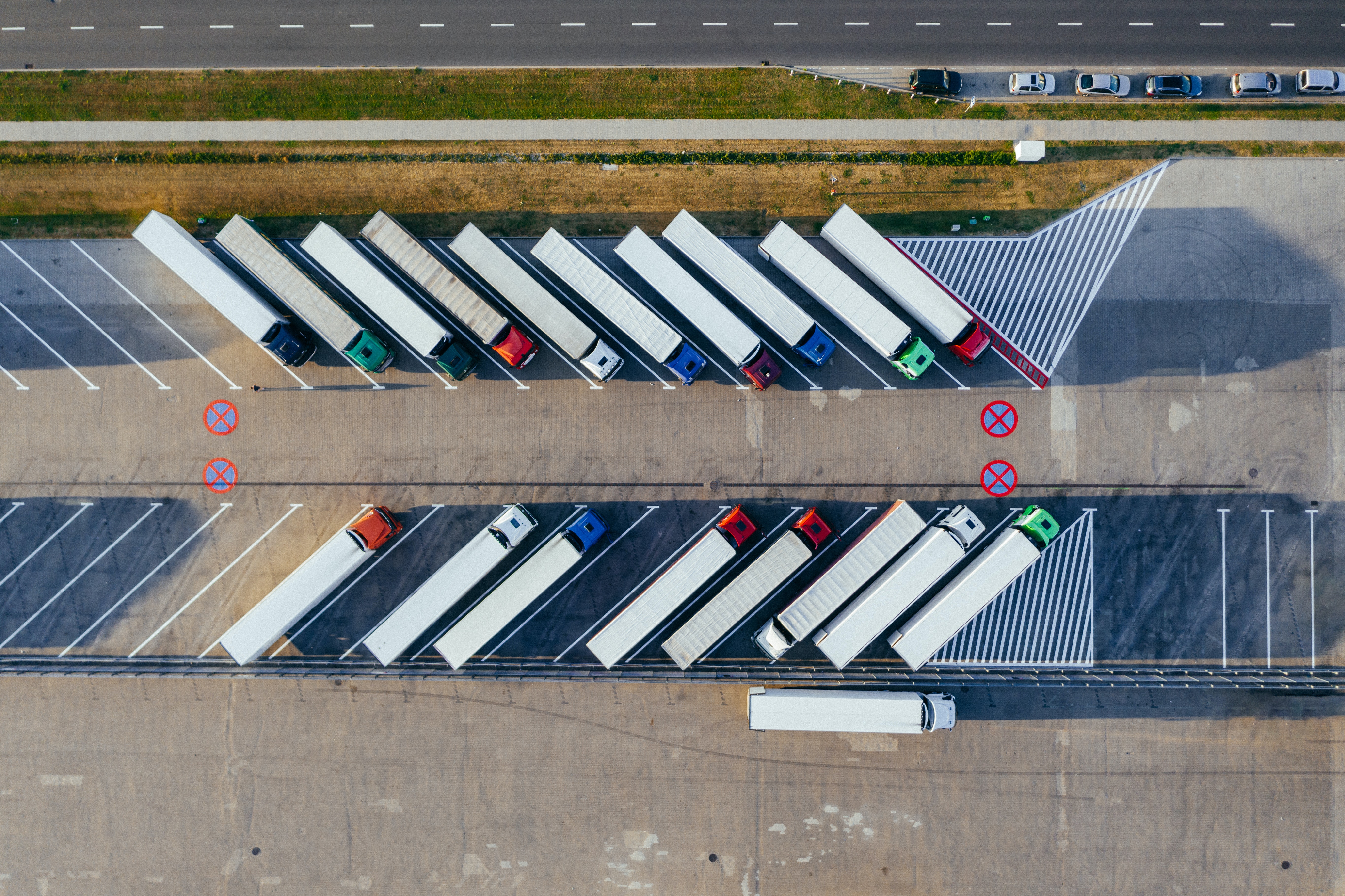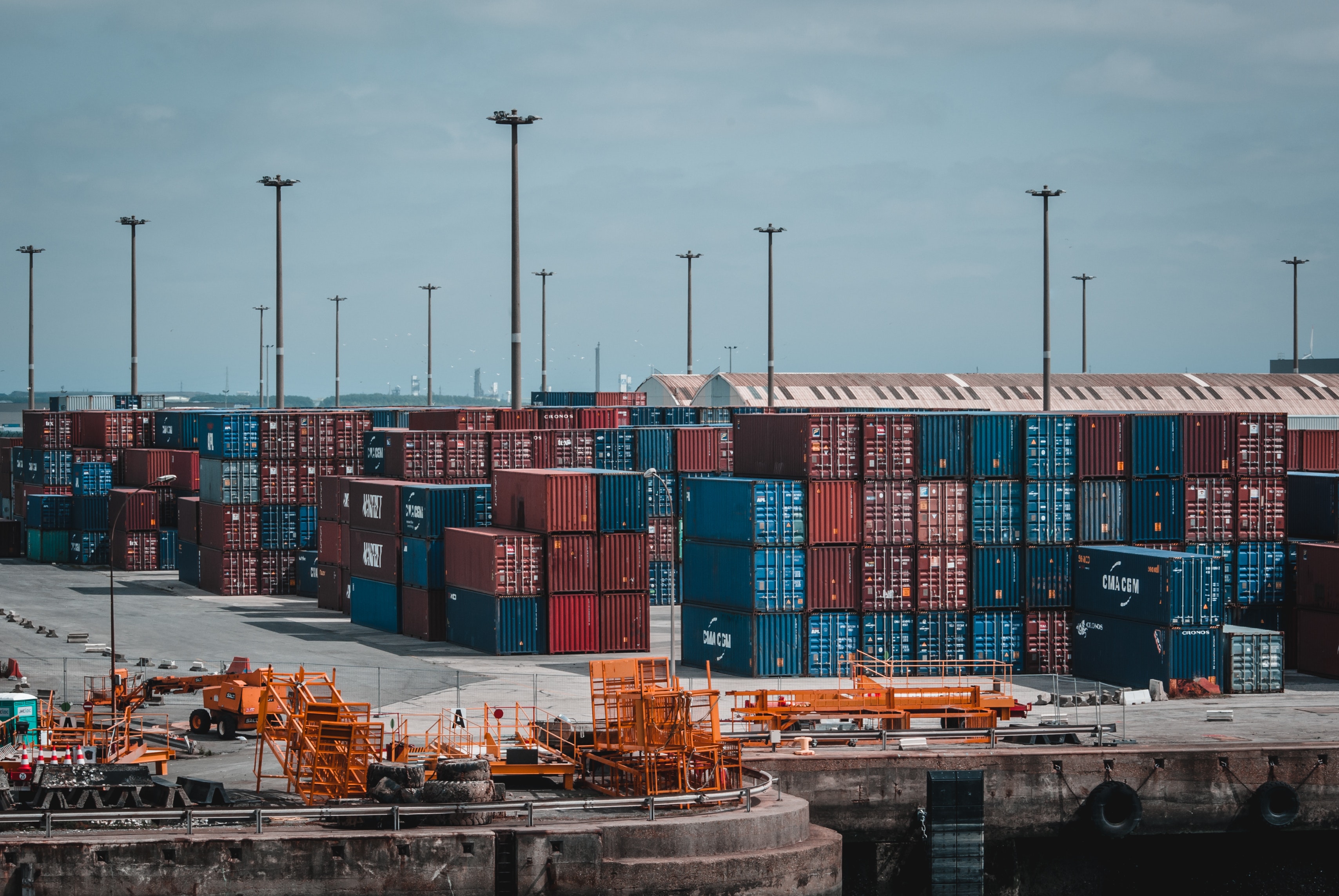Sustainable Freight: What Does it Look Like?
Industry leaders expect freight to increase by 50% by 2050. And with it, emissions will rise by 16%. We can no longer ignore the impact of the transportation industry on the environment. With the right policies, we could easily transform how the industry works and reduce emissions and pollution.
Freight counts for 40% of the CO2 emissions in the transport industry. If change is not implemented and acted upon, freight will grow by 22% by 2050. The time for action and sustainable freight is now.
So, what does sustainable freight look like? Keep reading to find out.

What does sustainability mean?
Sustainability is the idea that humans and the environment are interconnected and need to be treated as such. It is a holistic approach to thinking about how we can maintain our planet for future generations.
To make this idea a reality, we must integrate sustainability into every aspect of society. This includes business, government, education, and even the way we live in our personal lives.
In the freight industry, this means that the company is doing its best to minimize environmental impact and reduce carbon footprint.
What does sustainable freight look like?
The freight industry is a major part of the global economy, and it is also one of the most polluting industries. What does sustainability mean in this industry?
Sustainability for freight means reducing emissions, improving efficiency, and reducing waste. Many companies have begun implementing sustainability initiatives and strategies in the freight industry.
Sustainable freight is a new concept that has been gaining traction in recent years. It refers to the use of technology and practices that reduce the environmental impact of transport. This includes using electric trucks, autonomous vehicles, and drones.
In a nutshell, sustainable freight is about moving goods in a way that doesn't harm our planet or its people.
As a CPG company, you can change the way you operate to improve sustainability. Below, we’ll discuss these concepts in depth.
Tracking
The future of sustainability and environmentalism are dependent on the use of data. By tracking freight, organizations can understand their carbon footprint. Insights will help make sure that they are doing their part to keep the planet healthy.
When you track your freight, you can see where products are coming from. You also determine how long it takes them to get from point A to point B. And discover how much carbon emissions it creates along the way.
As the world becomes more and more connected, there is an increasing need for data collection and analysis.
Why it’s important
Optimizing transportation processes reduces the carbon footprint and improves sustainability. They can also use this information to identify opportunities for cost savings. For example, companies could use more efficient modes of transport. Or they could route goods through more environmentally friendly manufacturing sites.
It is not a fast process to see a change in the freight industry. It takes time for others to see the impact of the changes happening.
However, with tracking freight, it is easier to measure completed performance. It’s also more transparent about what else there is to be done. With this, employees plan their workloads better and make sure that they can reach their goals.

Efficiency
We cannot stress the importance of efficiency to achieve freight sustainability. Sending out freight that has a partial load or wasted space isn’t going to help sustainability efforts. Companies must focus on efficiency if they want to be sustainable.
An efficient freight system can reduce costs, increase productivity, and improve quality. This is because it reduces the amount of time it takes to transport goods from one point to another, as well as the cost associated with this process.
Fuel efficiency
Companies need to find ways to be more efficient and decrease their carbon footprint. One way of doing this is by using electric vehicles that have a better batter efficiency than their fossil fuel counterparts. This will not only reduce fuel costs but also save money on maintenance, repair, and replacements of batteries.
The companies that have invested heavily in electric vehicles can reap benefits from them. Electric vehicles will be able to produce fewer emissions than their fossil fuel counterparts. Companies also lower their operational costs due to the lower running cost of these vehicles.
Battery efficiency
The heavier the battery, the less efficient it is. Efficiency is harder to obtain with electric vehicle batteries. You have limited amounts of energy that you can store based on the weight of the battery.
The key to improving the battery efficiency for an electric vehicle is to find ways to store more energy in less weight. One solution could be by using lithium-ion batteries or other high-energy-density batteries.
Where you travel
Local sourcing and supplying for CPG brands is a sustainable method of sourcing products. It helps to reduce the carbon footprint by using local resources and reducing transportation costs.
The use of technology has made it easier for companies to source locally. Also, when companies buy from local suppliers, they can source more products at a lower price point.
Local sourcing is an effective way for businesses to reduce their carbon footprint and be sustainable in the long run.
How to remain sustainable when working globally
With globalization, it's becoming more and more difficult to be sustainable when sourcing global materials. However, there are some ways to remain sustainable in this market.
Many companies find the process of international sourcing complicated and time-consuming. However, with technology tools, large businesses streamline their operations. This saves them time and money in the long run.
How to optimize global routes
The logistics industry is a huge market, and it's growing rapidly. There are many different models that companies use to optimize their global routes. All route optimization strategies have one goal in common. And that is to reduce the total carbon footprint of the company.
Global freight routes are long, complex, and often unpredictable. With the help of technology, companies can optimize these routes to reduce shipping time, costs, and carbon footprint.
Artificial intelligence and machine learning are powerful tools companies use to become more sustainable. The use of these technologies in the field of logistics is increasing rapidly. Many companies discovered using technology is a more efficient way for companies to manage their logistics operations.
Emissions
The freight industry has been the main cause of emissions and global warming. However, there are ways to make it better for the environment and still keep up with business.
The way that a company can help with sustainability is by reducing their emissions. This is done through:
- Providing more efficient logistics solutions
- Using alternative fuels
- Driving electric vehicles
Freight companies must understand the impact of emissions on sustainability in this sector if they want to see change.
Electric and hybrid vehicles
Electric vehicles are a great way to reduce our carbon footprint. They are also cheaper to maintain and have more efficient fuel consumption. Hybrid vehicles combine electric and petroleum engines and can be used in all weather conditions.
Electric and hybrid vehicles are not sustainable without the use of renewable energy sources. These include:
- Solar
- Wind
- Hydroelectricity
- Geothermal power
- Hydrogen power
These vehicles are typically more expensive than their fossil fuel counterparts.
Energy consumption
The freight industry consumes a lot of energy. The biggest contributing factor to this high amount is the lack of automated systems in place. Lack of automation leads to no real-time updates on load or destination. You also don’t have access to other information that can help with efficiency and sustainability efforts.
There are several ways that companies can reduce their energy consumption and help with sustainability. These include using pre-fabricated buildings or solar panels. They also need to reduce fuel consumption by implementing trucks with engine shut-downs during idle periods.
Low carbon options
Low carbon options are the way to go for companies that want to increase sustainability in their operations.
Some companies are looking for ways to increase their sustainability. Others are struggling with how to reduce carbon emissions without sacrificing their bottom line. Companies can have a positive impact on the environment while remaining profitable.
They just need to implement low carbon options in their supply chain operations. Some of these options include eco-friendly shipping, on-demand logistics, and electric vehicles.
Renewable energy
The transportation industry uses renewable energy sources for several reasons. The most common reason is to reduce the environmental impact of trucking by using clean fuel sources such as solar or wind power.
This will help them reduce their carbon footprint by making them more efficient. Companies that have a high volume of freight need to take advantage of renewable energy sources. Moving to renewable energy will make them more sustainable by eliminating fossil fuels.
Waste
Businesses must minimize the waste they produce. This is because it is not just a cost, but also a major part of the company’s carbon footprint.
Freight management software helps companies save money. It also helps to reduce their carbon footprint by reducing waste in the supply chain. It also helps them improve efficiency and reduce costs associated with freight logistics.
Companies can reduce the number of shipments, reuse materials, and recycle them to optimize waste.
Benefits to society from sustainable transportation efforts
Transportation is one of the most important parts of our daily lives. It is a vital part of how we get around, how we do our jobs, and how we maintain relationships.
Sustainable transportation practices have a profound impact on society. These practices help:
- Reduce emissions
- Improve air quality
- Improve the health of people who live in high-density areas
- Reduce exposure to traffic-related pollution
The impact is also felt by companies that rely on reliable transportation as an important part of their business model. They can have a more efficient process when it comes to shipping products and services around the country or world.
There are several ways to make sustainable transportation practices more popular. First, we need to educate people about their benefits. And we need to show that everyone can use sustainable transport methods.
Take action to improve sustainability
After reading this article, you can see that freight has a long way to go to reach sustainability. But as a company, you can contribute to making that happen. Society as a whole must make policy and energy changes. And use technological advancements to transform the freight industry.
As a CPG brand, you can start with small changes that make a big impact. For example, you can source or supply locally instead of globally. Or you could increase the efficiency in your supply chain to reduce waste and improve operations.
The change won’t happen overnight, but with a collective effort, it could happen sooner than expected. At Buffalo Market, we are dedicated to bringing purpose-driven food to major retailers. We partner with brands just like yours to make a difference in the world.
Contact us today if you are ready to work with a company that will help you with your sustainability efforts.


